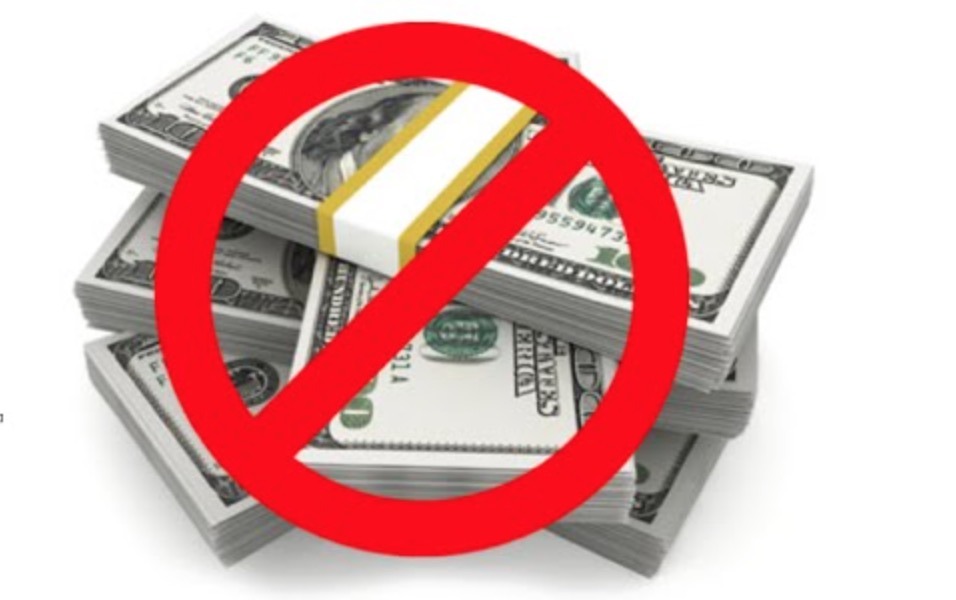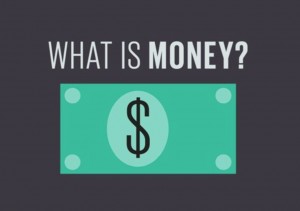I’ve known about Ripple for close to a year now. I’ve been meaning to write a post on it for several months, but since doing so is such a difficult effort I kept putting it off. The most accurate expression I’ve seen to-date describing the daunting task of explaining Ripple to someone who has never heard of it is the following line published in a recent Bitcoin Magazine article:
If you’re ever explaining Bitcoin to someone and they’re getting it, start talking about Ripple, just to confuse them again.
That was precisely how I felt when a friend of mine first introduced me to Ripple. I had only recently really gotten behind Bitcoin, and now I had to try to understand something else? Even worse, something that seemed far more complicated. While I was interested in the idea right off the bat because I have a huge degree of trust in this person’s opinion on technology, it seemed overwhelming so I put the entire thing to the side.
My perspective changed later in the year when another friend of mine asked me if I knew about Ripple. It turns out he is friends with the head of Markets and Trading at Ripple Labs, Phil Rapoport. Since Phil is based in NYC, and I was headed there, I decided to set up a meeting and develop a more informed opinion on the subject.
By the time I met with Phil, I had put a lot more thought into Ripple in order to ask good questions by the time he showed up. I was highly skeptical for many reasons.
Ripple is not particularly embraced within many areas of the Bitcoin community, and I can understand why. Going in, I had many doubts. It is first and foremost a payment protocol, and secondly a “math based currency.” Since I couldn’t grasp the payment aspect until my meeting with Phil, I had spent all of my time thinking about the currency aspect of it, and that part was not appealing to me when compared to Bitcoin.
First off, the currency is pre-mined. This means that all the units are already in existence from day one and controlled by the creators, as opposed to Bitcoin, where the currency is mined over time by computers confirming transactions and ensuring the system runs smoothly. The distinction is important since the distribution process for Ripple is entirely opaque, while the distribution process for Bitcoin is far more transparent. While you do not know who exactly receives the bitcoins as each block is created, you do know how many are being distributed and at what pace until that moment in 2140 when the very last BTC is mined. With Ripple (the native currency of the protocol is known as XRP), the only thing we know is that there are 100 billion in existence (the most there will ever be) and that the founders kept 20 billion for themselves. The remaining 80 billion have been allocated to a company called Ripple Labs, which is in charge of distributing the remaining XRP as they deem appropriate. To-date, about 9.5% of the 80 billion have been distributed and you can track the progress here.
From a business standpoint, I can understand why this would be the case. They can sell some of it into the market to pay day-to-day expenses (Ripple already has a total valuation of about $1.4 billion), they can allocate it to employees as compensation, they can give it away via charity such as their partnership with the World Community Grid, and most importantly they can gift them to strategic “Gateways” (more on those later) in order to grow the payment system into what it needs to become in order to succeed.
One of the things that I and many others in the Bitcoin community have loved about Bitcoin is the fact that some poor computer nerd could have started mining bitcoins from his home computer several years back and now be a millionaire. It is very grassroots in that way. The people who saw its potential early on had the ability to participate in what was kind of like a decentralized IPO. All you needed was a little vision and some computer chops. There is something brilliant and beautiful in that distribution process. While mining is now a very expensive affair and out of the reach of the average person, this wasn’t the case in the beginning when there was far more risk involved in the entire experiment.
With Ripple, a somewhat equitable early distribution process was never on the table. The founders have/are allocating the currency in a highly centralized and opaque manner. There’s something about this that rubs many in the crypto-currency community the wrong way. Moreover, because Bitcoin is such a grass roots creation, it is simply much more political than Ripple is or ever will be. Buying Bitcoin and supporting it is for many of us an expression of disgust with the Federal Reserve in particular, and the legacy banking system in general. While many supporters of Ripple will most definitely harbor similar sentiments, buying XRP isn’t really a statement, while buying and spending BTC very much still is.
So those are some of the “negative” aspects of Ripple. I think they represent much of the skepticism in the Bitcoin community. They certainly reflect many of my own sentiments before I learned more about the tremendous potential of the payment system.
I will now explain how I overcame my initial skepticism on Ripple and saw the enormous power and benefit of the payment protocol itself. Earlier, I described some of the main differences between Ripple and Bitcoin. I called your attention to many of the aspect of Ripple that folks within the Bitcoin community tend to dislike. I think it is also important to understand some similarities they share.
One major similarity is that they both represent new payment systems that at their core allow for transfers of value from one person to another across the world at essentially zero cost. Both run on open source code and empower merchants and economic growth generally by eliminating the middlemen currently taking anywhere from 2%-3% for merely processing payments. The tens of billions of dollars spent on such fees can be repositioned as fuel for the global economy and put to more productive uses.
They were both released to the world for free. This represents a huge revolution not just in payments, but in potentially how some startups might choose to fund themselves in the future. Within Bitcoin, the unit of exchange, BTC, is needed in order to participate in the payment protocol. In that way, bitcoins, can be seen as the equity of the network. Early adopters bought or mined bitcoin, and as they increased tremendously in value, many of them have used their wealth and knowledge to greatly advance the protocol to where it is today.
Ripple also has a currency, called XRP, which can also be seen as the “equity” of the payment system. Here is where we start to see a major difference between the two systems. Within the Bitcoin network, you will use BTC, whereas the Ripple network is currency agnostic for the most part. The system does not discriminate between one currency or the other. Using Ripple, you can send payment to someone quickly and at essentially no cost whether it is USD, gold, XRP, or bitcoins.
That said, the currency XRP does play two major roles in the system.
1) Since it is the native currency on the protocol, it is the only currency traded or exchanged on the system that does not have any counter-party risk. Anyone with a Ripple wallet can send anyone else XRP at any time with no exceptions, sort of like Bitcoin. By contrast, in order to receive any other currency or asset of value on the system you must trust certain “Gateways.”
2) There is also a certain amount of XRP that is destroyed with every transaction on the system. The amount is a negligible .00001 XRP (a extraordinarily tiny fraction of a penny), and is used to prevent spam transactions from clogging the protocol. As such, each wallet on Ripple needs to have a minuscule XRP reserve balance of 20, which is at total of $0.28 at current prices.
In a nutshell: XRP has value as the reserve currency of the payment system. It is the grease in the wheels of the whole thing.
Ok, so I probably lost a lot of you above with the whole “Gateway” and “trust” concept. Let me explain.
First of all, no other currencies or items of value are actually held within the Ripple payment system. Gold traded on Ripple will be held in a vault somewhere, and U.S. dollars (USD) traded will be held in some sort of external financial institution, a bank, credit union or whatever. This is where “Gateways” come into play. “Gateways” are essentially companies that serve as the custodians for non-XRP assets that trade on Ripple.
To make this easy to understand, I will use the USD example. If you are a U.S. citizen and want to hold USD in your Ripple wallet the best “Gateway” to use at the moment is SnapSwap. SnapSwap has a bank account at Bank of America and you “fund” your Ripple wallet with USD by sending the currency to SnapSwap’s bank account. At that point your USD enters the Ripple network and you can purchase XRP and send it to anyone, or you can send your USD to anyone on the Ripple network who also “trusts” SnapSwap. As I mentioned earlier, you don’t need “trust” to send or receive XRP, you only need “trust” to send other items of value that have counter-party risk. Since there is obviously counter-party risk associated with your USD (risk resides at both SnapSwap and Bank of America) a Ripple user must conduct due diligence to determine whether or not they “trust” SnapSwap in order to receive USD via Ripple. The choice is yours.
For more information on how SnapSwap funding works, I suggest reading this explanation.
This brings me to what I think is one of the most exciting parts of Ripple, the ability to trade physically backed, deliverable precious metals. All you need is a “Gateway” with a vault (or access to one) that is willing to allow the metals to trade instantaneously and in fractional amounts on the payment system. While my mind was already excited about this potential after I met Phil in NYC, one of the things holding me back from writing this article was the lack of a solid option for doing so. Well that option arrived in January with the launch of Ripple Singapore as a “Gateway” in late January.
In the press release describing the service they explained:
Read more
Follow me on Twitter.





 Money is a very important part of all our lives. The understanding of money, how it works, and how we treat it can dramatically improve or diminish our quality of life.
Money is a very important part of all our lives. The understanding of money, how it works, and how we treat it can dramatically improve or diminish our quality of life.